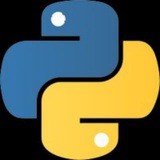Python programming codes
#career_management_skills
1. What factors should you consider for a right career for you?
1. What factors should you consider for a right career for you?
1.
✅your passion about it
✅your strengths in it
✅the value it bring to you and others
✅your passion about it
✅your strengths in it
✅the value it bring to you and others
*Here are few Important SQL interview questions with topics*
Basic SQL Concepts:
Explain the difference between SQL and NoSQL databases.
What are the common data types in SQL?
Querying:
How do you retrieve all records from a table named "Customers"?
What is the difference between SELECT and SELECT DISTINCT in a query?
Explain the purpose of the WHERE clause in SQL queries.
Joins:
Describe the types of joins in SQL (INNER JOIN, LEFT JOIN, RIGHT JOIN, FULL JOIN).
How would you retrieve data from two tables using an INNER JOIN?
Aggregate Functions:
What are aggregate functions in SQL? Can you name a few?
How do you calculate the average, sum, and count of a column in a SQL query?
Grouping and Filtering:
Explain the GROUP BY clause and its use in SQL.
How would you filter the results of an SQL query using the HAVING clause?
Subqueries:
What is a subquery, and when would you use one in SQL?
Provide an example of a subquery in an SQL statement.
Indexes and Optimization:
Why are indexes important in a database?
How would you optimize a slow-running SQL query?
Normalization and Data Integrity:
What is database normalization, and why is it important?
How can you enforce data integrity in a SQL database?
Transactions:
What is a SQL transaction, and why would you use it?
Explain the concepts of ACID properties in database transactions.
Views and Stored Procedures:
What is a database view, and when would you create one?
What is a stored procedure, and how does it differ from a regular SQL query?
Advanced SQL:
Can you write a recursive SQL query, and when would you use recursion?
Explain the concept of window functions in SQL.
These questions cover a range of SQL topics, from basic concepts to more advanced techniques, and can help assess a candidate's knowledge and skills in SQL :)
Like this message ❤️👍
Basic SQL Concepts:
Explain the difference between SQL and NoSQL databases.
What are the common data types in SQL?
Querying:
How do you retrieve all records from a table named "Customers"?
What is the difference between SELECT and SELECT DISTINCT in a query?
Explain the purpose of the WHERE clause in SQL queries.
Joins:
Describe the types of joins in SQL (INNER JOIN, LEFT JOIN, RIGHT JOIN, FULL JOIN).
How would you retrieve data from two tables using an INNER JOIN?
Aggregate Functions:
What are aggregate functions in SQL? Can you name a few?
How do you calculate the average, sum, and count of a column in a SQL query?
Grouping and Filtering:
Explain the GROUP BY clause and its use in SQL.
How would you filter the results of an SQL query using the HAVING clause?
Subqueries:
What is a subquery, and when would you use one in SQL?
Provide an example of a subquery in an SQL statement.
Indexes and Optimization:
Why are indexes important in a database?
How would you optimize a slow-running SQL query?
Normalization and Data Integrity:
What is database normalization, and why is it important?
How can you enforce data integrity in a SQL database?
Transactions:
What is a SQL transaction, and why would you use it?
Explain the concepts of ACID properties in database transactions.
Views and Stored Procedures:
What is a database view, and when would you create one?
What is a stored procedure, and how does it differ from a regular SQL query?
Advanced SQL:
Can you write a recursive SQL query, and when would you use recursion?
Explain the concept of window functions in SQL.
These questions cover a range of SQL topics, from basic concepts to more advanced techniques, and can help assess a candidate's knowledge and skills in SQL :)
Like this message ❤️👍
100 Most Asked HTML QnA .pdf
204.6 KB
Document from Itsmekriish
